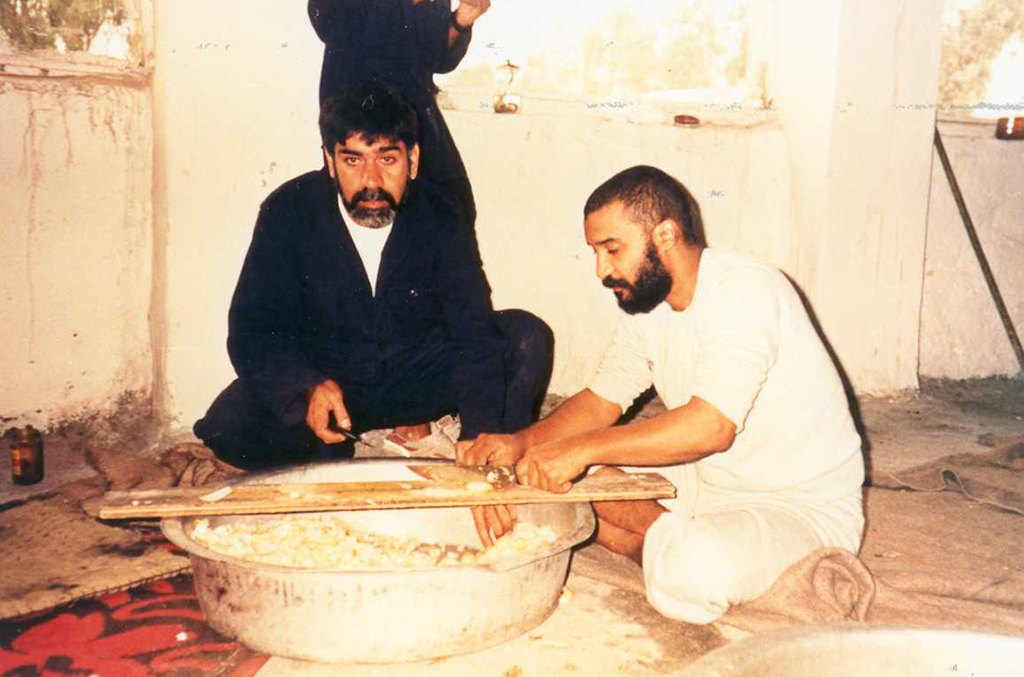By Faten Omar
KUWAIT: Kuwait marks the 32nd anniversary of the Iraqi invasion Tuesday. On the morning of August 2, 1990, Kuwait woke up to the sounds of tanks and shooting guns after the Iraqi army invaded the country in an attempt to annex Kuwait and make it one of its governorates. The Iraqi invasion of Kuwait had a significant impact on people and the country socially, politically, economically, and environmentally. Kuwaiti prisoner Retired Colonel Nasser Sultan Salmeen shared with Kuwait Times his story during the Iraqi invasion.
Salmeen was captured on August 3, 1990 and released on March 27, 1991. Salmeen says that nightmares still haunt him after all those years. He shared his fears of waking up one day and finding out that his life of freedom was a dream, and he was still behind bars in Iraq. "The period of captivity is one of the most difficult periods that every Kuwaiti prisoner has experienced," he said. "It was a mixture of torment and abuse. Thirty-two years have passed, but bitter memories of the aggression linger on, particularly among former and surviving prisoners."
 Retired Colonel Nasser Sultan Salmeen presents a copy of his book to former US Ambassador Alina Romanowski.
Retired Colonel Nasser Sultan Salmeen presents a copy of his book to former US Ambassador Alina Romanowski.The Retired Colonel shared in his books stories about his daily life as a Kuwaiti in an Iraqi prison, affirming that those memories will not be forgotten, especially the cruelty of being behind iron bars of the defunct regime's prisons. "Kuwaiti prisoners were in a state of shock and grief for being separated from their homeland. In addition, they were deeply worried about Kuwait's destiny," he noted. "The prisoners were under too much pressure from the Iraqis, who were seeking to force them to cooperate. The prisoners had to survive poor feeding, lack of hygiene and bad health conditions, but they managed to help and motivate each other."
He expressed his anger toward people who invaded his country, affirming that he will always remember the moment and the day that people were killed and imprisoned, as well as the fear on the faces of children. While the liberation gave Kuwaitis back their freedom, many lost hope of finding the people who sacrificed for Kuwait. "When I returned from captivity, I saw how Kuwait was destroyed and burned to the ground," he mentioned. "I visited the commando camp which witnessed our fight on the first day, and I visited the 'Highway of Death' and the destroyed war tanks on Al-Mutlaa road."
He said that in addition to Kuwaiti soldiers, doctors fought and struggled in the military hospital. "When I was a prisoner in Iraq, the news of the liberation of Kuwait came to me as a pleasant surprise," he recounts. "I have never been happier. We were people without a homeland or identity, and we had no shelter. We felt the return of the homeland, freedom, and the word of Kuwait, which we had lost for 209 days."
Future generations
Salmeen hopes that the current and future generations will read history correctly and know the sacrifices made by their fathers and grandparents to learn that Kuwait is a country of heroism. Salmeen wrote his book about his daily life as a prisoner and added pictures that were taken with a camera that his family smuggled to him during their visit to the prison.
The aim of publishing the book is to keep the memory of the invasion fresh. He stated that he remained in captivity for 238 days, during which he and the prisoners moved between several detention centers and prisons, and they faced the suffering and pain of being away from their homeland and family. After the first book's success, he released the second one with an upcoming English version. The book tells the stories of his fellow prisoners and disappeared heroes who were not mentioned in the history of Kuwait.











